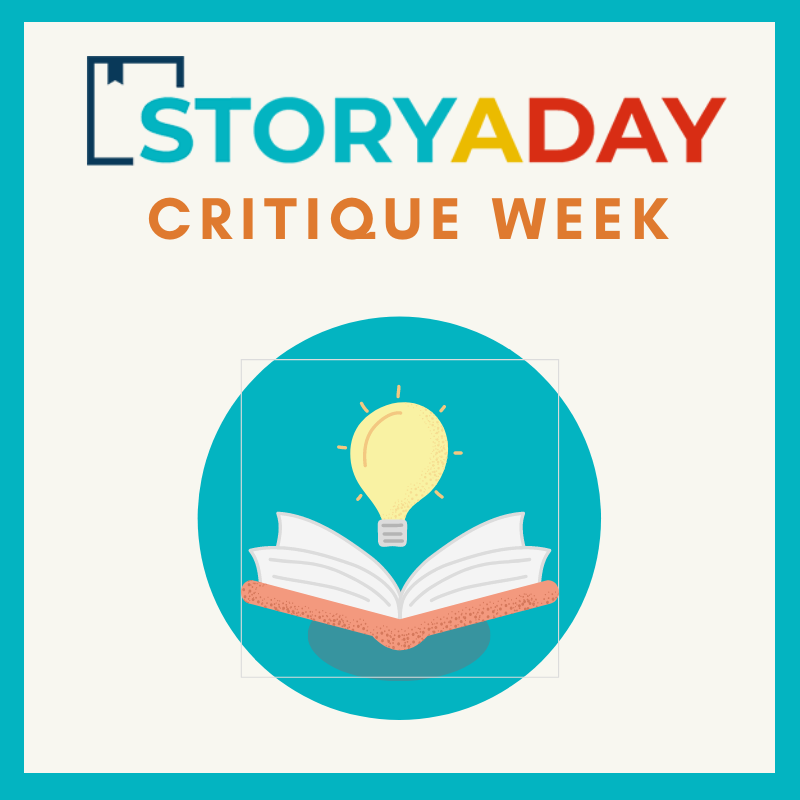After a challenge like StoryADay (or a lifetime of writing) you may be asking, “How can I revise my writing so I can get published, without becoming distracted, discouraged or overwhelmed?”
For more, listen to episode 226 of the StoryADay podcast
I have a system for figuring out that very thing, that will help you identify and work on the stories that will keep you making consistent progress towards your writing goals.
Part 1 of this process is to assess the material you have, to see what you should work on, first. That’s what this article is about. Part 2 is about identifying what’s working and what needs to be improved in your writing. Part 3 is about strategies and techniques for making those improvements as you revise your writing.
Part 1 – Assess
The first thing to do is read through all the stories you think you might want to work on. As you do so, pay attention to your gut and ask yourself a few questions about each story:
Does this story excite you?
This sounds like a strange question, but sometimes we write stories to prompts or in genres we don’t love, as experiments. Sometimes we try out ideas that fizzle. Sometimes we’ve outgrown a topic without realizing it. But some stories make us want to work on them because they match up with our current interests and focus.
Also ask: could it excite you, with a relatively simple fix? (e.g. if you wrote a story with a romantic subplot, but you’re not interested in romance, would you be more interested in writing the story by changing the relationship to a clearly platonic one? Simple: find a way to establish that, early on, and write the story you want to write!)
Now that you have all the stories that currently excited to write you’re ready for another quesion:
Do you currently have the skills to revise this story?
If you do (or if you’re not sure) give it a shot and see what happens.
If you know (or discover) you don’t have all the skills you need to improve a particular story (and you’ll know this if you get stuck) go and learn about and polish the craft skills you lack.
For example, if you don’t know how to begin, end, and/or get through the middle of a short story well, consider taking my 3-Day Challenge. Want to know how to make Flash Fiction awesome? Take a class from Kathy Fish.
Make a note of the skills you feel you lack and make an appointment with yourself to find the best books, writing exercises and teachers in this area.
Is there an audience for this story?
This is a valid question when wondering what to work on next, but I’d argue you shouldn’t ask yourself this question too early in the process.
Don’t hold yourself back because of market concerns.
“Do the work and make it good. Create rigorous art first…and be willing to then ask: do you need to and deserve to capitalize on the work?”
Kiese Laymon
Unless you’re determined to be the next James Patterson, where everything you put out is very commercial and targeted-, t’s OK to focus on making art, making it good, and only then figuring out where it belongs.
This is why StoryADay is structured the way it is: it’s why I invite you to comment during the challenge for accountability, comment about the work you’re writing, but not to post your drafts. Thinking too much about publication early on can kill the creative work of writing the short story.
Do the work, make idiosyncratic stories, don’t prejudge or hold yourself back because you’re not sure who’s out there waiting for your writing
(Between the day when you start your quirky, tiny story about owls with galaxies under their wings, someone might start a whole publication devoted to galaxy-owl stories. You never know!)
Don’t Revise Too Soon
The Assess Phase is important. Don’t skip it.
If you want to make progress and not get discouraged, it’s important to work on the right things at the right time. So here’s the Assess Phase again:
- Read your stories and figure out which ones excite you
- Of the stories that excite you, which do you think you might have the skills to finish now
- Of those stories, pick your favorite and write until you finish a draft or are well and truly stuck because you lack a skill.
- Figure out ways to improve your writing craft.
I do recommend working on each story until you finish a draft, or until you are stuck and have put in place a plan for getting unstuck. Only then are you allowed to move onto another story.
(Exception: if you know you are more productive when switching between projects and you prove it by consistently finishing them, then you are welcome to keep working that way!
Finish your work.
Make it good.
Don’t get distracted by the shiny new thing.
Next time: Keep it safe: the art of giving and receiving feedback without harming yourself, other writers, or your work.
Leave a comment: what holds you up when you think of revising and publishing your stories?


